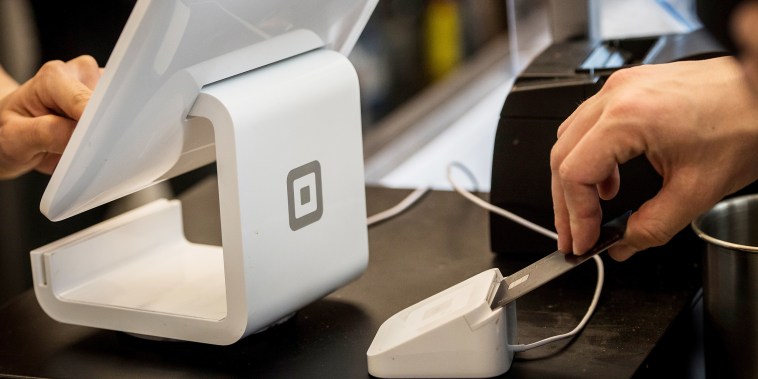Americans now owe $1.08 trillion on their credit cards, according to a new report on household debt from the Federal Reserve Bank of New York.
Credit card balances spiked by $154 billion year over year, notching the largest increase since 1999, the New York Fed found.
“Credit card balances experienced a large jump in the third quarter, consistent with strong consumer spending and real GDP growth,” said Donghoon Lee, the New York Fed’s economic research advisor.
Credit card delinquency rates also rose across the board, according to the New York Fed, but especially among millennials, or borrowers between the ages of 30 and 39, who are burdened by high levels of student loan debt.
With most people feeling strained by higher prices — particularly for food, gas and housing — more cardholders are carrying debt from month to month or falling behind on payments, and a greater percentage of balances are going more than 180 days delinquent, according to a separate report from the Consumer Financial Protection Bureau.
Nearly one-tenth of credit card users find themselves in “persistent debt” where they are charged more in interest and fees each year than they pay toward the principal — a pattern that is increasingly difficult to break, the consumer watchdog said.
“It’s a big deal,” said Ted Rossman, senior industry analyst at Bankrate. “Your credit card is probably your highest cost debt by a wide margin.”
Credit card rates top 20%
Credit card rates were already high but have recently spiked along with the Federal Reserve’s string of 11 rate hikes, including four in 2023.
Since most credit cards have a variable rate, there’s a direct connection to the Fed’s benchmark. As the federal funds rate rose, the prime rate did, as well, and credit card rates followed suit.
The average annual percentage rate is now more than 20% — also an all-time high.
Why credit card debt keeps rising
Despite the steep cost, consumers often turn to credit cards, in part because they are more accessible than other types of loans, according to Matt Schulz, chief credit analyst at LendingTree. But that comes at the expense of other long-term financial goals, he added.
“That’s money that doesn’t go to a college fund or down payment on a home purchase or Roth IRA,” he said.
Up until recently, most Americans benefited from a few government-supplied safety nets, most notably the large injection of stimulus money, which left many households sitting on a stockpile of cash that enabled some cardholders to keep their credit card balances in check.
But that cash reserve is largely gone after consumers gradually spent down their excess savings from the Covid-19 pandemic years.
Now, “consumers are maintaining and supporting their lifestyles using credit card debt,” said Howard Dvorkin, a certified public accountant and the chairman of Debt.com.
“It has been a struggle,” said Adriana Cubillo, 25, of Modesto, California. “My rent is going up, so even though all my bills are paid, sometimes I’m living paycheck to paycheck.”
Still, consumer credit scores have remained high, helped by a strong labor market and cooling inflation, along with the removal of certain medical collections data from consumer credit files, recent reports show.
What to do if you’re in credit card debt
If you’re carrying a balance, try calling your card issuer to ask for a lower rate, consolidate and pay off high-interest credit cards with a lower interest home equity loan or personal loan or switch to an interest-free balance transfer credit card, Schulz advised.
To optimize the benefits of their credit card, consumers should regularly compare credit card offers, pay as much of their balance as they can as soon as they can and avoid paying their bill late, said Mike Townsend, a spokesperson for the American Bankers Association.
“Any credit card holder who finds themselves in financial stress should always contact their card issuer to make them aware of their situation,” Townsend said. “They may be eligible for some relief or assistance depending on their individual circumstances.”
More from CNBC:
Biden tries to erase student debt in conflict with Supreme CourtExperts see ‘inevitable’ slowing in credit card spending3 risks to beware of as economy heads for soft landing

